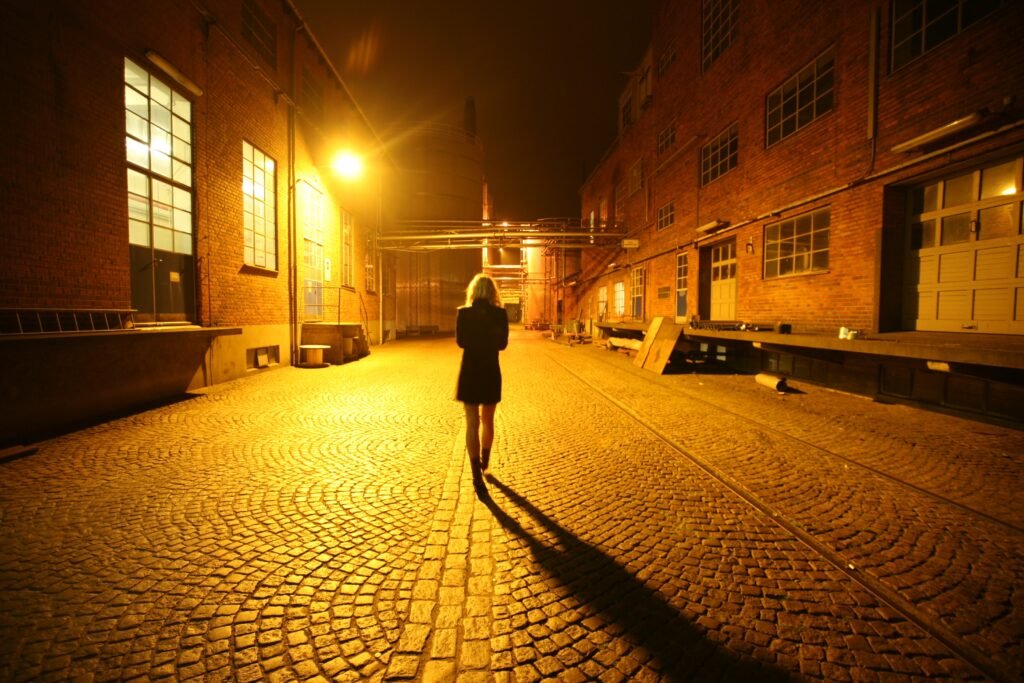How the 2017 Sexual Offences legislation harms migrant sex workers in Ireland

It should come as no surprise that sex work isn’t going anywhere anytime soon. With early records of prostitution dating as far back as 2400 BC, sex work might just be one of the oldest professions in the world. And yet, in the majority of nations across the globe, sex workers still face perennial abuse, violence, and stigmatisation for simply existing in their line of work.
There is no shortage of data to show that, when sex work is criminalised, sex workers are more vulnerable to abuse, and sex work is criminalised almost everywhere in the world. But sex work remains a prevalent industry despite what legislation dictates, and Ireland is no different.
Sex work legislation
Sex Workers Alliance Ireland, or SWAI, is an organisation founded to protect the oft-neglected interests of sex workers. Its mission statement dictates its purpose, “To promote the social inclusion, health, safety, civil rights and the right to self determination of female, male, cisgender and transgender sex workers.” The group has been vocal in its criticism of part four of the Criminal Law (Sexual Offences) Act of 2017, which introduced two new offences in the realm of sex work: “paying for sexual activity with a prostitute and paying for sexual activity with a trafficked person.”
Following the false promises of the Nordic model, the assumption is that criminalising the buyer will eradicate the demand for sexual services, and sex work will be subsequently abolished altogether.
This, unfortunately, is not the case, nor has it ever been.
“People become vulnerable to predators when they’re not having their needs met, and that’s kind of the issue with the laws around sex work at the moment,” says Linda Kavanagh, who manages communications and admin for SWAI. “The aim of it is to reduce the demand for sex work, to reduce the number of clients, but without providing for sex workers on the other side, predators will use this to their advantage.”
Kavanagh has been involved in the pursuit of bodily autonomy for women in Ireland for a long time. And, especially in light of recent violent attacks against women in Ireland, she acknowledges that the imperative to change the narrative around how society treats women has never been greater.
“We have a long, dark history in Ireland of trying to control women’s bodies, especially ‘fallen women’…who step out of a very patriarchal norm, and that’s still an issue. Convents and nuns who are involved in that dark history, Magdalene laundries and mother and baby homes, are still involved in [legislation]. They’re still very influential.”
Although Ireland has made progressive steps in recent years, like legalising abortion services for women back in 2018, Magdalene-funded NGOs still have the power to pull legislative strings. These lobbying groups bolster an old-fashioned religious ideology that condemns most forms of sexual expression, and women and sex workers in particular continue to be the victims of that long-held shame around sex and the body.
“Sex workers are collateral damage in this misguided ideological war to eradicate sex work. And sex workers get blamed a lot of the time for violence against women because of porn and because of sex work, so it’s really difficult to look at all this talk and see how there are some people it’s acceptable to be violent towards and some people who it isn’t,” says Kavanagh.
An amendment to the legislation also increased penalties for “brothel keeping”, which broadly criminalises any individuals operating their services in the same place. The supposed intention behind the amendment was to keep women safe from trafficking and punish those enforcing sex work upon them, rather than punishing the sex workers themselves. In reality, Kavanagh explains, “Sex workers are getting arrested and prosecuted and jailed for sharing a premises, and the majority of women who have been arrested for brothel keeping are overwhelmingly young, migrant sex workers.”
Although it is difficult to gather reliable statistics on the number of undocumented persons in Ireland, estimates place that number around 17,000. Kavanagh explains to me that the demographic of sex workers who come to SWAI for help is not truly representative of how great a proportion of Ireland’s sex workers are migrants.
And she points out that raids on migrant sex workers are knowingly undertaken in a discriminatory manner: “It’s not targeting exploitation or trafficking, it’s been noted by judges in a lot of the cases that have come to light that there was no exploitation, but people are still being prosecuted for sharing a space.”

Stigmatisation and hypocrisy
It is worth mentioning that, even though many people in mainstream society imagine sex workers only enter the industry through coercion or trafficking, in actuality they fall across a spectrum ranging from choice to circumstance to coercion. SWAI and organisations like it want to ensure that sex work legislation makes room for individuals that fall anywhere on that spectrum.
There have been detrimental affects in conflating sex work with trafficking, something that is too often done in legislation around sex work. Like in the case with brothels being targeted for supposed exploitation, these broad sweeps end up pigeonholing migrant workers as trafficked when they’re not.
While trafficking certainly does take place for the purpose of sexual exploitation, there is a greater prevalence of labour exploitation taking place across agriculture, construction, fishing, and manufacturing industries. And Kavanagh looks at sex work as an industry much like the aforementioned, but one in which its workers are not afforded the same legal assurance and safety.
“In other industries the other ways you deal with exploitation and trafficking…is you’d have anonymous reporting mechanisms and you’d have unions, strong unions. Sex workers aren’t allowed either of those things,” says Kavanagh.
To work legally, sex workers must conduct their services alone, which is a dangerous clause that is rarely, if ever, enforced in other industries. Even under all the “right” circumstances, the Gardai still find means by which to condemn sex workers. Kavanagh explains that condoms are often used as evidence that sex work has occurred or will occur, “So there’s migrants doing sex work who don’t carry around a lot of condoms because they’re afraid of Garda searches.”
It is one example of the many ways in which criminalisation stigmatises sex work to such an extent that sex workers are forced to disregard their own health and safety. This is only compounded in the case of migrant sex workers, who are not only afraid of being prosecuted for the industry they work in, but of being forced to leave the country, too.
Kavanagh says it is hard to track, but at SWAI they have seen time and again that migrant sex workers can be arrested for brothel keeping or another offence under the law and get told by Gardai: “Leave the country, or we will prosecute you”. She says, “It’s deportation under a different name… [Sex workers are] basically given this choice that’s not really a choice.”
Kavanagh struggles to communicate “just how much sex workers do not want the Gardai to know that they are sex workers” given the prevalence of stigmatisation and an overarching fear of prosecution. That fear is magnified for undocumented migrants engaged in sex work.
“For example, during the pandemic when the [pandemic unemployment] payments were being given out, there were a lot of sex workers that didn’t avail of them because they were really afraid that immigration would get calls,” Kavanagh explains.
When crimes are committed against sex workers, when they are exploitated by landlords or clients, the prevailing sentiment is that seeking help and restitution is not worth the risk.
It is becuase of this that Kavanagh believes there should be “a kind of firewall” between immigration offences and all other forms of offence, and not just for the sake of sex workers alone, but all undocumented migrants in Ireland.
“If somebody is a rape victim or anything like that, you should be guaranteed that the immigration services aren’t going to get called if you’re reporting a crime…. I wouldn’t understand why anybody would be against that, and it makes everybody more safe.”
Beyond detrimental government policies, financial institutions have also helped to place migrant sex workers in perilous situations. Undocumented migrants can’t open bank accounts in Ireland, which means they must resort to dealing exclusively with cash. “You’re more likely to engage with a third party, that third party could be quite dodgy, you don’t have any recourse on that. If you get robbed, that could be all of your money.”
To complicate matters more, sex workers do not have access to financial platforms available to the general public, as Venmo and Paypal have both banned sex workers from using their platforms. Actions like these push sex workers further and further from mainstream society, putting them in the precarious hands of cash-only exchanges.
What is being done
Meeting the needs of migrant sex workers is the only way to ensure their safety and, ultimately, provide then with other options for employment if they want to leave sex work. When basic needs like housing, affordable childcare, and health services are not met, those in already vulnerable positions are further exploited.
It was stipulated that part four of the Criminal Law (Sexual Offences) Act of 2017 would undergo a review after a period of three years, something the advocates at SWAI helped to bring in. The review, which was due to take place in 2020, was intended to assess the impact of the act on the welfare of those affected.
Kavanagh explains that the review started in August 2020 with an online questionnaire, but one which made it particularly difficult for a large demographic of sex workers to engage with. SWAI pushed for the questionnaire to be distributed in other languages besides English to accommodate migrants involved in sex work. Despite translating the questions, Kavanagh says the survey seemed as though it had been thrown together quickly, written in dense, academic language and with questions worded in a leading manner. And since the deadline for the questionnaire closed, there has been no update on the review whatsoever.
Kavanagh says that SWAI and its advocates want to see all aspects of sex work decriminalised, in line with the model that’s been introduced in New Zealand, where it is not against the law to be a sex worker, operate a brothel, or pay for sexual services. But one salient demographic is missing from their model: migrants. The decriminalisation of sex work is, in Kavanagh’s words, “a pointless endeavour” to implement in Ireland if migrants are not explicitly protected, too.
Cosc – The National Office for the Prevention of Domestic, Sexual and Gender-based Violence / cosc.ie
Dublin Rape Crisis Centre – www.drcc.ie / national 24-hour helpline Freephone 1800 778888
Rape Crisis Network Ireland – www.rcni.ie / local centres www.rapecrisishelp.ie/find-a-service
Crime Victims Helpline – www.crimevictimshelpline.ie / Freephone 116 066